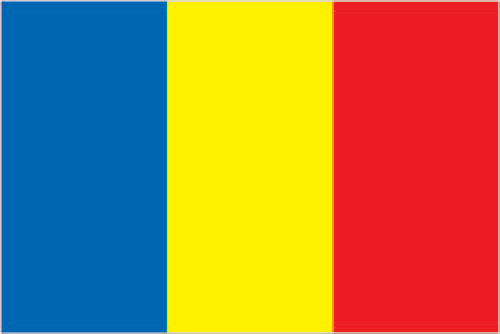
Source: World Bank
. Romania is still governed by a great deal of bureaucracy.
. Personal relationships are crucial if you want to cut through the red tape.
. Much business involves overlapping local bureaucracies, which make conducting business a time consuming process that requires perseverance.
Building Relationships
. Romanians prefer to do business with people who are down-to-earth and do not brag about their accomplishments or financial achievements.
. They pride themselves on using proper etiquette in all situations and expect others to do the same.
. When in doubt, start out in a formal style and allow your business colleagues to progress the relationship to a more personal level.
. As long as you are considered an outsider (someone who is not family or a friend), you will be treated with utmost formality.
. Once your Romanian colleagues get to know you, they will think of you as an insider, which lets them treat you more informally.
. This is not a process that can be rushed.
. Once a relationship has been developed, it is with you personally, not necessarily to the company you represent. Therefore, if you leave the company, your replacement will need to build their own relationship. If at all possible in this situation, introduce your replacement to those with whom you do business.
Business Meeting Etiquette
. Appointments are necessary and should be scheduled 2 to 3 weeks in advance, preferably by letter.
. It is often difficult to schedule meetings in July and August, which is a common vacation time.
. Businesspeople are often unavailable during the two weeks before and after Christmas and the week before and after Easter.
. Arrive on time and be prepared to wait.
. Punctuality is common in entrepreneurial companies or those that frequently do business in the international arena.
. When dealing with state-run companies, you will most likely be kept waiting.
. Meetings are generally formal and follow old-world rules of courtesy.
. Wait to be told where to sit. There is often a strict protocol to be followed.
. Do not remove your suit jacket without permission or until the most senior ranking Romanian does.
. Expect to spend time getting to know people before delving into the business purpose of your visit.
. Presentations should be factual and easy to understand.
. Include facts and figures to back up your conclusions.
. Avoid hyperbole or making exaggerated claims.
Negotiating
. Business is hierarchical. Decision-making power is held at the top of the company.
. Most decisions require several layers of approval. At times it may appear that no one wants to accept responsibility for making the decision.
. It may take several visits to accomplish a simple task.
. Romanians can be tough negotiators.
. Romanians are concerned about being taken advantage of by foreigners.
. Hire your own interpreters for meetings and negotiations.
. Base sales on confirmed, irrevocable letters of credit. Use local banks that are correspondents of western banks.
. Romanians have a tendency to tell others what they think they want to hear.
. Avoid confrontational behaviour or high-pressure sales tactics.
. Decisions are easily reversed.
. Use an indirect negotiating style. Being too direct is viewed as poor manners.
. Contracts function as statements of intent. It is expected that if circumstances change, the contract will accommodate the revised conditions.
. Do not change members of a negotiating team before a decision is reached or the relationship-building process will have to begin anew.
Business Card Etiquette
. Business cards are exchanged without formal ritual.
. If your company has been in business for more than 50 years, include the founding date on your business card. Romanians are impressed by stability.
. Include any advanced university degrees on your card.
. Have one side of your business card translated into Romanian.
There is considerable variety throughout the two countries, but banks can be expected to open from 9am to 5pm, with many closing for an hour around noon; some are open on Saturday mornings. Most shops are open from 9am or 10am to 6pm or 7pm, some closing on Sundays; museums are usually open from 11am to 5pm, most closing on Monday. Post offices are open from 8am to 7pm Monday to Friday, until 4pm on Saturday, and closed on Sunday. Most restaurants and cafés open from 8am or 9am and close at 11pm or later. Theatrical performances and concerts usually begin at 7pm.
Some business change their hours for ‘summer’ (loosely June to September) and ‘winter’ (loosely October to May).